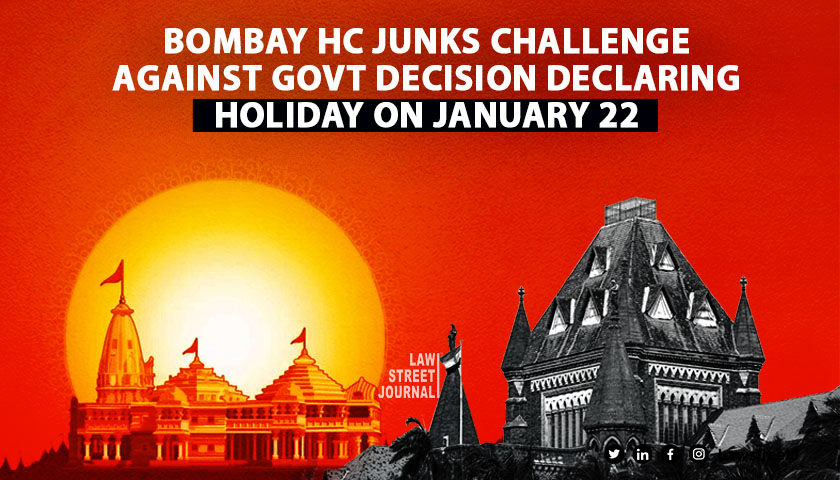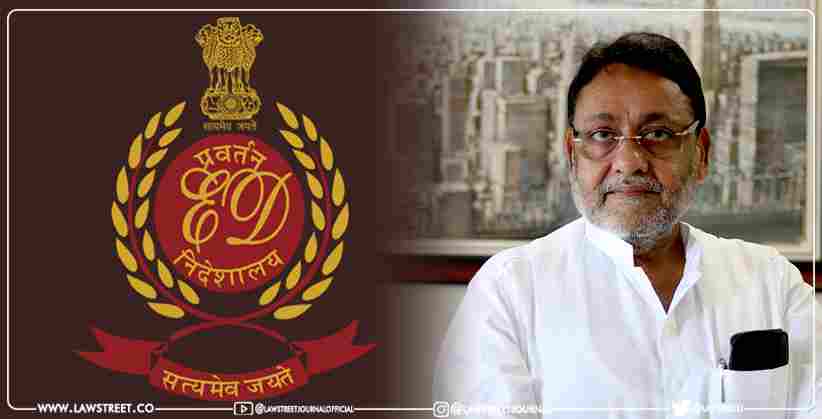Mumbai: On Sunday, the Bombay High Court dismissed a public interest litigation (PIL) petition filed by law students challenging the Maharashtra government's decision to declare a holiday on January 22 on account of Ram Mandir inauguration at Ayodhya.
A division bench of Justices GS Kulkarni and Neela Gokhale held a special sitting today to hear the matter.
Reportedly, the court said that PIL was a publicity-oriented petition while adding that the declaration of holidays comes under the policy realm of the government.
"The consistent view of courts is that such decision falls in the realm of executive decision," the Court ruled.
The bench further emphasized that courts have regularly concluded that the State's use of force is consistent with secular principles. The court further expressed that the plea seems to be politically motivated and publicity interest litigation considering the tenor of the petition and the arguments made in open court, the bench said.
The Bench refrained from imposing costs and instead advised the petitioners not to pursue these matters through a PIL before rejecting the plea.
"We intend to caution the petitioners to be more careful when they take upon themselves to espouse such cause. For these reasons there is no doubt that this PIL is abuse of process of law and we intend to dismiss with exemplary costs. We refrain ourselves from imposing costs and hope the petitioners will be more careful when appearing in person," the bench said while dismissing the plea.
The petition was filed by four law students, Shivangi Agarwal, Satyajeet Salve, Vedant Agrawal, Khushi Bangia, pursuing LL.B from Maharashtra National Law University (MNLU), Government Law College(GLC), Mumbai and NIRMA Law University, Gujarat.
The plea sought to quash the notification issued by the Maharashtra government on January 19 which declared the holiday. As per the plea, the State government notification amounted to expending from the government exchequer for religious purpose which is prohibited under the Constitution.
The State government's announcement, according to the plea, amounted to spending money from the government exchequer for religious purposes, which is against the Constitution. With this, the plea argued that India, being a secular State, the government cannot identify itself with any particular religion.








![Husband Can Also Claim Alimony/Maintenance From Wife: Bombay High Court Orders Woman To Pay Alimony To Ex-Husband [Read Order]](/secure/uploads/2022/04/lj_2823_Divorce.jpg)






